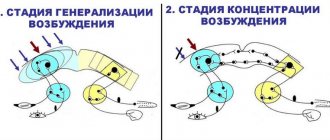You've probably started hearing about tolerance very often. So what is it? Let's figure it out. The word “tolerance” itself originates from the Latin word “tolerantia”, literally translated as patience. In sociology, tolerance is tolerance for a worldview, religion and behavior that is alien to you.
Photo by Jennifer Polanco: Pexels
Most likely you are now thinking: “how can this be? After all, the modern world now dictates such rules that, on the contrary, it is emphasized in every possible way that there is no need to tolerate it.” Tolerance is a different story. This term is usually called respect. After all, you want to be respected, right?
But another person may not agree with your point of view and your behavior, but shows tolerance and respect because he understands that you have the right to do what you do, as long as you do not break the law. Tolerance is a set of rules, which means that all people are equal.
In this article:
What are personal boundariesWhy is it important to be tolerantTolerance, what is it?Why is it fair to be tolerantHow to realize tolerance?Instead of conclusion
What are personal boundaries
Personal boundaries are something you have the right to, just like any other person. You have the right to set these boundaries yourself, you can do whatever you want within their framework. But who likes having his limitations violated? Everyone has the right to personal boundaries, every person is free to choose their religion and customs, but it is important to remember that your boundaries end where another person’s begin.
Tolerance is precisely about this tolerance, about the fact that in modern society it is simply necessary to respect the boundaries of another person, respect a person as an individual and accept his views, as he accepts yours. You need to understand that accepting does not mean trying on yourself. After all, you don’t argue that two and two are four, you understand this and move on with your life. So it is here. Live on!
Why is it important to be tolerant
Tolerance in everything is great. After all, it is through tolerance that we become kinder and wiser. If you remove disrespect for your neighbor from your life, then you will have a lot of time for yourself.
What is tolerance?
By ceasing to hate someone else's life, you will let kindness into your heart, cleanse your energy of negativity and pay attention to strengthening your boundaries, which suffer while you throw stones at another person. By showing tolerance, you are not obliged to remain silent if you disagree with something. You can constructively, correctly, and most importantly calmly convey your views or ask about something, the main thing is not to get personal and not to insult your interlocutor.
Tolerance, what is it?
Sociologists distinguish several types of tolerance.
- Natural tolerance.
This type is common in children. These little creatures are too busy with self-knowledge and self-identification to pay attention to the color of another person’s skin; they simply will not understand why their mother is taking them away from their dark-skinned friend and are likely to be upset by such a parent’s gesture. Natural tolerance is an innate quality that is inherent in everyone, but under the yoke of society we are deprived of this quality. It's time to learn from children and revive this quality in yourself.
- Moral tolerance.
This type is about respect, patience, wisdom. People of this type may not agree with this or that point of view, but if they speak out about it, they will do it with the calmness of an elephant, they will try to build a very correct dialogue, and if insults fly in response, they will remain silent and step aside.
- Moral tolerance.
People with this type of tolerance always put themselves in the shoes of another person and analyze what it would be like for them there. Why did a person choose this particular religion? Maybe because the place of birth of a person became fundamental for this choice? Morally tolerant people will always be imbued with the problem of another person, without daring to condemn him.
- Ethnic tolerance.
This type implies respect for other ethnic groups. A person with this type, having arrived in the United Arab Emirates, will never ask the question “why should I follow their rules?” It seems logical to him to follow the rules when in a foreign country, this is how respect is shown.
How to be tolerant in a world full of paradoxes
Do not consider your opinion the only correct one
In one study, Prejudiced and unaware of it: Evidence for the Dunning-Kruger model in the domains of racism and sexism, participants were asked to rate how tolerant they were of people of a different gender or race. And then they asked questions that help reveal hidden biases. It turned out that sexists and racists considered themselves the most tolerant. And the self-esteem of truly unbiased people was quite modest. And this is a good example of how you can misinterpret your own opinion, not to mention someone else’s.
Start with yourself
Intolerance often arises in relation to views and lifestyles that do not directly affect us at all. Let’s say, if someone wants to wear flip-flops on their socks, why does that make us sad? Perhaps such a person looks ridiculous or unfashionable to us. But this is not his problem, but ours. And it is we who need to figure out what frightens and touches us so much that it causes hostility.
Self-examination is painful. It is always easier to shift responsibility for discomfort onto someone else. At the same time, life will become much easier if you deal with internal problems. Because the people who piss us off won't go away. It's much easier to stop being angry.
To be open
In medicine, tolerance means a decrease in reaction to repeated administration of a substance, addiction to it. This definition already contains instructions. We may become irritated when we encounter certain people because we perceive them as something foreign. But tolerance is a habit. The more often we interact with a stimulus and react to it uniformly, the easier it is to form a stereotype of tolerant behavior.
Don't criticize, but be interested
Unusual things and people irritate us. But perhaps it would be easier for us to accept if we knew why things are the way they are. For example, wearing socks under flip-flops protects against blisters. But the family of a person of a different nationality are fifth-generation residents of this area, and he is not the one who “came in large numbers” here. Such sudden discoveries make you look at everything in a new light.
Tell your opinion
If the previous paragraphs were more about tolerance, then here we come straight to its paradox. As we remember, the main weapon of tolerance is education. And public discussions work great for these purposes.
For example, let’s take the scandal with the “dominance” of black characters in cinema. The pendulum swings, and the two extreme positions are most visible. On one there are those who are worried that there are no black people in the Chernobyl series. On the other are viewers who express their outrage at any dark-skinned character. But now the problem of discrimination in the film industry has been brought to the level of public discussion, and this is already a lot. And the pendulum will sooner or later calm down and take a position in the center.
Don't be afraid of discussions
Popper suggests not depriving the voices of hostile philosophies (which could be any of us). Truth is born in disputes, but only if the interlocutors are at least a little ready to listen to each other. If we simply defend our position without hearing our opponent, it is a waste of time. But if you approach the process consciously, you can get a very good result.
- Find out new data and adjust your views. It is normal to change your mind in light of additional information.
- Strengthen your position. The opponent’s arguments sometimes only add bricks to it.
- Get arguments for new disputes. Opponents often ask questions that baffle us. But they also provide food for thought. There is an opportunity to think and prepare in case someone asks the same thing in the future.
It is also important that the discussion is aimed not only at opponents, but also at spectators. We may not convince our opponent, but we will make those around us think. That is why it is important to conduct the argument in an environmentally friendly manner and remember that this is a conversation, not a war.
Don't tolerate cannibalism
Of course, we can ignore hostile statements and no one should judge us for it. To resist “cannibalism”, you need an internal resource. Otherwise, while saving the world, we risk not saving ourselves. But if we have this resource, it is possible and necessary to express disagreement with a hostile position.
For example, you were always silent when someone was insulted in front of you, and then one day you stopped. For some time you will look strange in the eyes of others. And then someone else will take your side. And further. Nothing revolutionary, just words. But sometimes they are enough to change everything.
Why is it fair to be tolerant?
Each person has the same sky above his head, the sun, the stars. Do you agree that it is very ridiculous to believe that someone deserves a better life just because of the color of their skin and the shape of their eyes? We are all born on the same planet and have the right to move around it as we want, the main thing is peacefully.
Today, many would do well to remove the word “come in large numbers” from their vocabulary, because this is a direct manifestation of intolerance. It is not a person’s fault that he was born in a region or country where, for example, there are no jobs. He gained courage and left his native land to find income or his destiny.
It is necessary to accept this person with all sincerity and kindness, because he is all alone and he needs support. This example applies not only to other nationalities and visitors. The scheme is familiar to everyone, since in childhood it was already applicable, for example, to a new student in the class.
On tolerance towards people with disabilities
It is not a person’s fault that he was born or became different from you. Deciding not to communicate with him just because he has a disability is fundamentally wrong. This cliché prevents us from being able to fully explore ourselves as human beings. After all, you must admit, it is not so important whether a person has vision if he is an excellent conversationalist. In any case, even if such a person differs from you in some way externally, his internal qualities do not depend in any way on his external appearance.
Training to develop tolerance
I bring to your attention E. S. Arbuzova’s training on the development of tolerance. Exercises can be used either separately or in combination. They are suitable for adults and older teenagers. It is recommended to conduct training in a group.
"Greetings"
Training participants are encouraged to greet each other as is customary in different countries. For example, a handshake and eye-to-eye look from Germany, rubbing noses from Eskimos, and so on.
At the end of the exercise, it is recommended to share your impressions. This activity is especially useful in multicultural classes, groups, and teams. You can invite a representative from each culture to introduce their traditional greeting to others.
"What's in my name"
This exercise will allow you to look at yourself outside the box and teach you how to communicate with others. You need to write your name on the sheet, but backwards. Now you need to choose a word for each letter, but so that together you get some parting words, a message. If there are not enough letters in your name, you can ask someone for an extra letter. But you can’t ask for a specific one, you need to take the one they give.
"Telegram"
It is advisable to carry out the exercise in groups of at least 6 people. In each group, the initials of the participants (first and last name) are written down. The task is to compose a message from all the initials.
"Presentation"
Participants are divided into pairs. The task is to communicate with each other, and then introduce (present, describe, tell) your communication partner.
An alternative option is to first have one member of the pair tell a story about a fictional character with his real name. Then the partner tries to guess the real facts about the previous storyteller. Guess how he sees the world, what is valuable to him, what worries him, and so on. Our fantasies and fictitious stories most accurately convey the current state of our inner world. Whether we like it or not, the subconscious will take the reins. Especially when the hero of the fairy tale has the same name as ours. So all that remains is to listen carefully to your interlocutor.
"Detective"
The exercise is carried out in pairs. Participants are not allowed to talk. It is only allowed to show each other 6 (more or less) personal items. The task of the second participant in the pair is to create a description of the personality of his partner in these subjects. The partner denies or confirms the statements.
"Describe me"
Participants in pairs communicate with each other for 5 minutes. After this, they turn away from each other and write a mini-article (description), where they record the external, individual, behavioral characteristics of the partner. The partner denies or confirms the statements. The exercise develops observation, intuition, memory, empathy; improves relationships and mutual understanding of participants.
"The sun shines for those who..."
One of the participants goes to the center of the circle and says “The sun shines for those who ...” (names his advantage or disadvantage, predilection, sympathy or antipathy, and so on). If there is someone in the group with the same statement, then he goes into the circle and pronounces his statement. At the end there is reflection (which came as a surprise, what we have in common, am I happy about this).
Alternative option: the participant names the fact to himself, but in the form “those who have a sister will clap their hands.” He claps himself and looks to see who else has sisters. Statements can be very different, as can subsequent actions. The goal is to get to know each other better, find common ground, accept shortcomings, and emphasize strengths.
How to realize tolerance?
You have already learned about the first rule: there is one sky above each person’s head. But there are other ways to realize and accept that tolerance is important and necessary for a healthy society.
Analyze your ancestry. It happens that a person is intolerant of one of the nations, but then it turns out that this nationality is in his genetics. Almost all nationalities are 100% in our family tree, so is it worth it then to hate yourself because it turns out you didn’t love your wonderful great-grandmother?
The realization that it is you who need tolerance, and not someone else. You can only decide for yourself and in this matter you should not look at your neighbor. The argument is simple - tolerance provides the advantage of psychological comfort. You can't change the world, but you can change yourself.
Photo by Anastasiya Lobanovskaya: Pexels
Ask yourself: “would our world be so beautiful if we were all the same?” The people who create this world are unique, and despite their limited abilities or skin color, they strived and strive to make the world a better place. So why interfere with your intolerance in creating beauty for those who know how to create?
What follows from the paradox of tolerance?
As always, it all comes down to interpretation. Some perceive this paradox as a challenge: “Those who advocate tolerance are the most intolerant. At least we are not hypocritical from the beginning and openly say that we treat certain categories of people with hatred.” Others see it as a justification for violence as the primary way to defend tolerance: “All the good people will gather, they will drive out all the bad ones, and then we will live.” Both do not sound very peaceful.
Popper himself, although he believed that tolerance should be defended, called for this to be done “by the arguments of reason and <...> through public opinion.” Therefore, the intolerant should really be given the floor, because this creates a field for discussion. And use force only in the form of self-defense and only in order to return life to normal. The philosopher does not deny that they can be useful:
After all, it may well turn out that they [representatives of intolerant philosophical movements] are not ready to communicate with us at the level of arguments of reason and will begin by rejecting all arguments. Perhaps they <...> will argue that these arguments are deceptive and that to answer them one must use fists and pistols. Thus, in the name of tolerance, the right not to be tolerant of the intolerant should be proclaimed.
Karl Popper
For example, if a gray crow goes after a white crow with a pitchfork, there will be no time for discussion. It will be necessary to stop the aggressor by force. But until this happens, it is worth educating, convincing, and explaining. It is not necessary to be tolerant of “cannibalistic” opinions.
Popper in his work derives the most important, in his opinion, principles of humanistic ethics. We are interested in the first one:
Tolerance towards everyone who is tolerant and does not promote intolerance. You should treat someone else's moral choice with respect only if it does not contradict the principle of tolerance.
Karl Popper










